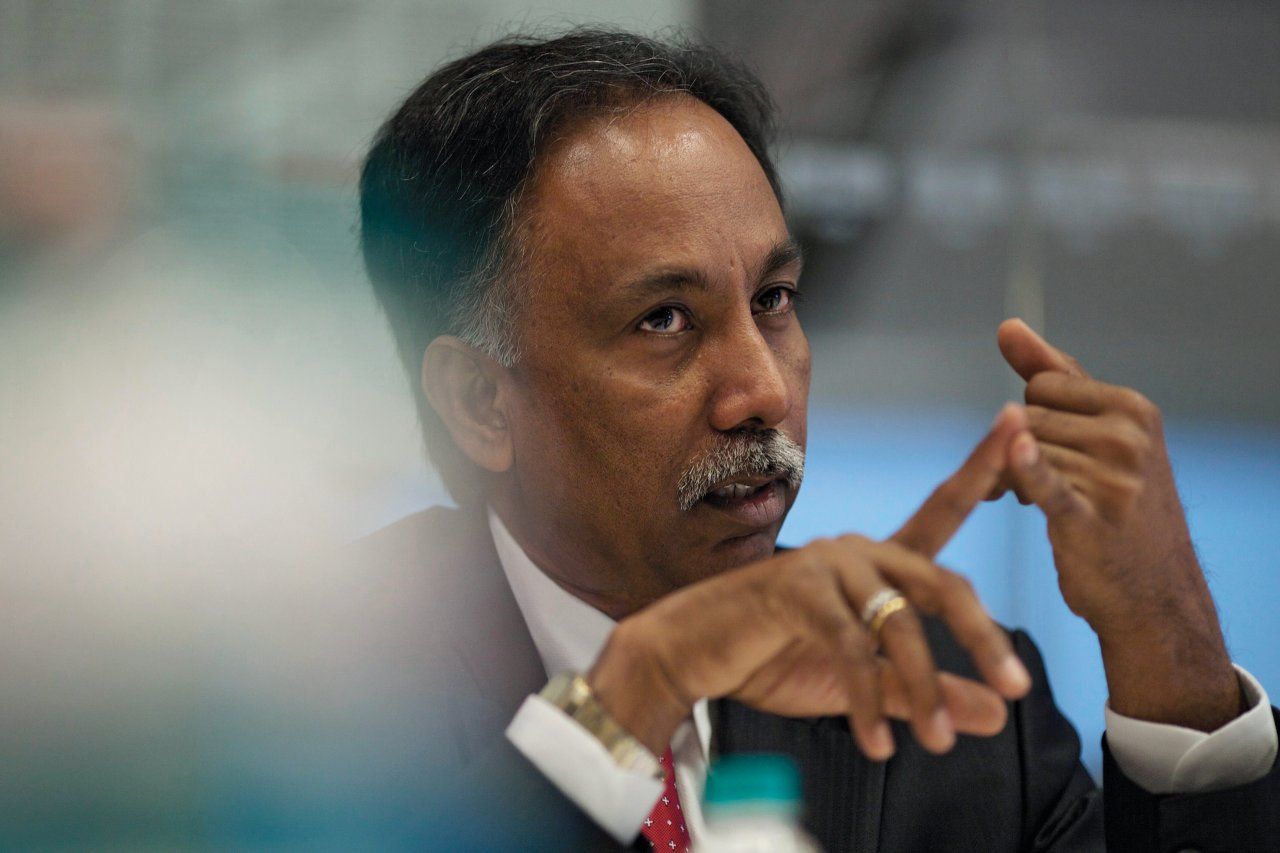
Outsourcing is a loaded word in politics. But in business, it's a vital activity, a huge source of profits. Nobody knows that better than S.D. Shibulal, cofounder and current CEO of Infosys Limited. Started in 1981 with 7 employees and a mere $250, Infosys now has $7.23 billion in annual revenue, a market value of $30 billion, and 155,000 employees in dozens of countries. Infosys has come a long way from call centers and help desks to being the outside IT and e-commerce consultant for the world's major corporations. "The dimensions of value are much more complex today," Shibulal tells me in a quiet room at the World Economic Forum meeting last month in Davos, Switzerland.
Outsourcing began when U.S. companies hired people abroad to do mind-numbing support work for much lower wages. That work still accounts for 60 percent of Infosys's business. But the company would prefer to be thought of as a high-end consultant like McKinsey, not a cheap substitute for the IT department. A third of revenue comes from "consulting and system innovation," says Shibulal, a notably soft-spoken man. Another 6 percent comes from "products and platform"—e.g., a new mobile point-of-sale system for Nordstrom. In 2012 Infosys paid $350 million to acquire Lodestone, a European management consultant.
Born just eight years after India's independence, Shibulal has ridden Infosys's fortunes to become the 77th-wealthiest Indian, according to Forbes (net worth: $770 million). The fortunes of India's global rich share headlines with grim news on political corruption, social problems, and deep-seated poverty. "All emerging countries are countries of contradictions. India is no different," he says, and then rattles off statistics that would make Tom Friedman drool. "India produces 1 million English-speaking engineers, but we have 14 million children who are not in school. We have 70 percent of our health care in cities, but 70 percent of our people live in rural areas."
Shibulal resides in Boston and Bangalore, but lives "on a plane" and has the weary eyes to prove it. He's predictably bullish on India's future. "When I was growing up, we had 30 million middle-class people. Today that number is 350 million," he says. India has proven itself adept at "frugal innovations" that afford access to goods developed countries take for granted, but at much lower prices. Shibulal cites the Tata Nano, a microcar that sells for $3,000, and a machine that can take EKG measurements for a dollar. American companies, he notes, can't thrive in India simply by producing a cheaper, smaller fridge. "The power still won't support it," he says. "It is about creating a new refrigerator that can remain cool even if the power goes out for two hours."
When I ask what Infosys does to ensure it can operate at global standards inside India, Shibulal's eyes light up. "You asked the question. So I can't resist." He pulls out a tablet and offered a guided aerial tour of a 400-acre campus in Mysore, 90 miles southwest of Bangalore. It's the size of a university: a million square feet of classrooms, a software development center that can house 10,000 people, and residence buildings that hold up to 14,000 employees and spell out INFOSYS when viewed from above. "Want to see our rainwater harvesting facility?" he asks, zeroing in on a huge reservoir. "It's a zero-discharge site. Every drop of water we get we pump back into the environment." The campus has a food court, a restaurant, a movie theater, a cricket ground.
It could be Silicon Valley, or suburban Cincinnati. In fact, the Indian outsourcer is now hiring in America—400 positions in the most recent quarter. "The U.S. is the largest spender in our space, and we work with many large corporations in America. And so we recruit in the local markets," he says. Yet Shibulal, who has a master's degree from Boston University and spent five years with Sun Microsystems, laments the shortage of engineers and tech workers in the U.S. "In our industry in the U.S., unemployment is 3.5 percent," he says. "So while we are recruiting people in the U.S. in large numbers, we find it hard to find people, even with the unemployment."
Uncommon Knowledge
Newsweek is committed to challenging conventional wisdom and finding connections in the search for common ground.
Newsweek is committed to challenging conventional wisdom and finding connections in the search for common ground.





